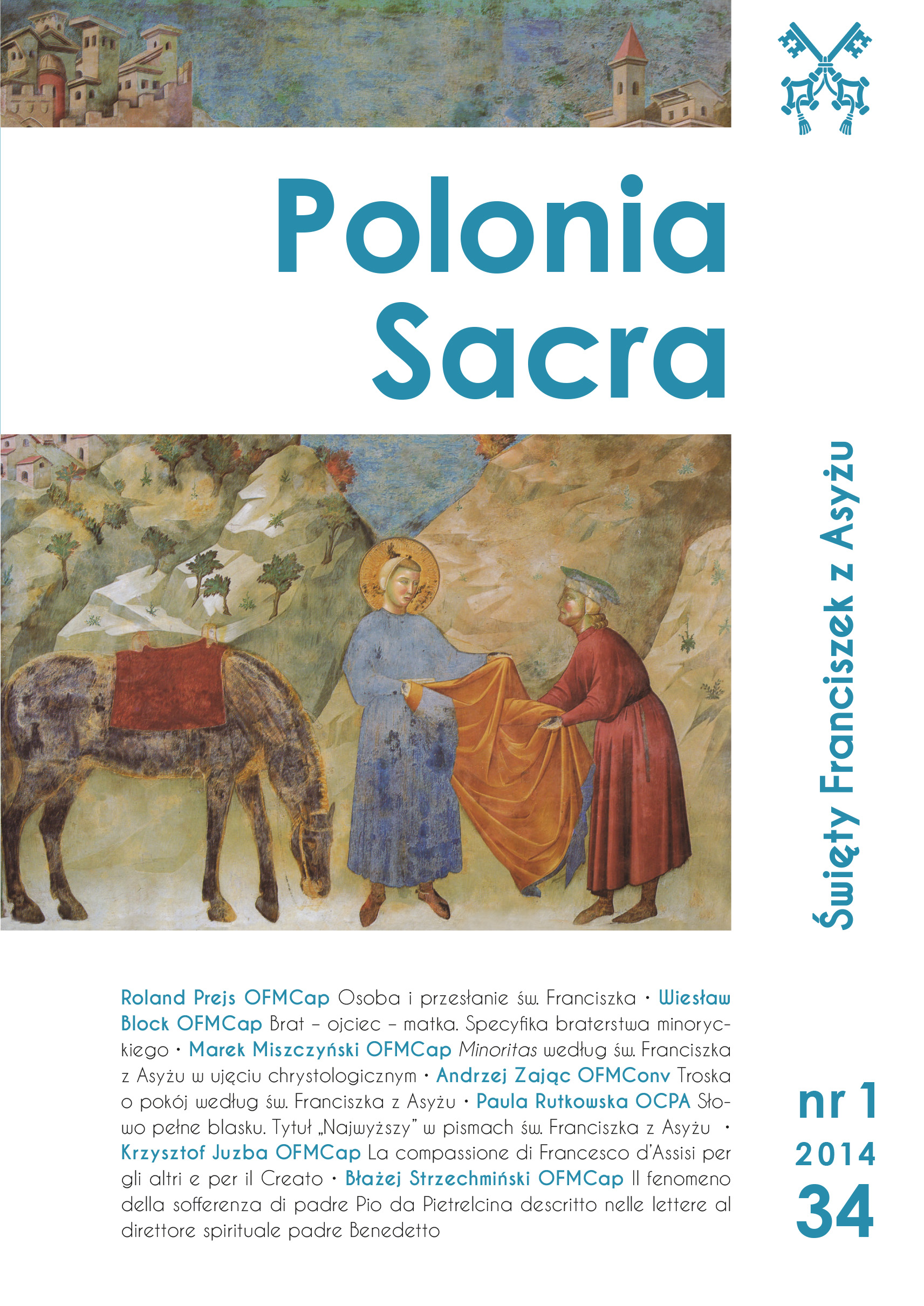Il fenomeno della sofferenza di padre Pio da Pietrelcina descritto nelle lettere al direttore spirituale padre Benedetto
DOI:
https://doi.org/10.15633/ps.624Słowa kluczowe:
cierpienie, choroba, kierownik duchowy, korespondencja, noc ciemna, pokusa, stygmaty, transwerberacja, wizje diaboliczne, zdrowie fizyczneAbstrakt
Autor artykułu próbuje przedstawić zjawisko cierpienia, opisane przez o. Pio w jego korespondencji skierowanej do o. Benedetto z San Marco in Lamis. Analizuje je z dwóch perspektyw: jako ból fizyczny i jako cierpienie duchowe lub moralne. Wychodząc od na- kreślenia bazy literackiej Epistolario I, przechodzi do opisu bólu fizycznego, klasyfikując go ze względu na przyczynę jego powstania, albo jako ból naturalny (choroby), albo ból „nadprzyrodzony”, czyli taki, którego pochodzenie jest bądź diaboliczne (dręczenie demoniczne), bądź Boże (transwerberacja boku lub serca czy stygmaty). Na koniec opisuje cierpienie duchowego i moralne, które występują podczas tzw. „nocy ciemnej” i wskazuje na niektóre z przyczyn jego powstawania (bojaźń, pokusy). Artykuł nie daje filozoficznych czy teologicznych odpowiedzi dotyczących natury cierpienia, ale analizuje fenomen cierpienia przez pryzmat efektów, jakie ono wywołuje. Jest próbą nakreślenia swoistego itinerarium duchowego o. Pio, które kształtowało się w szkole niezwykle bole- snego cierpienia, którym posłużył się Bóg dla oczyszczenia, upodobnienia i zjednoczenia go z Jego własnym Synem, Jezusem Chrystusem.
Pobrania
Opublikowane
Numer
Dział
Licencja
Autorzy publikujący w czasopiśmie udzielają jego wydawcy zgody o następującej treści:
- Autor zachowuje autorskie prawa majątkowe do utworu, a jednocześnie udziela wydawcy czasopisma zgody na jego pierwszą publikację w wersji drukowanej i wersji online na licencji Creative Commons Uznanie autorstwa 4.0 Międzynarodowe oraz zgody na wykonywanie opracowań, w tym przekładów.
- Autor ma możliwość udzielania zgody niewyłącznej na opublikowanie utworu w wersji, która ukazała się w czasopiśmie (np. zamieszczenia go w repozytorium instytucjonalnym lub opublikowania w książce), wraz z informacją o jego pierwszej publikacji w czasopiśmie.
- Autor może umieścić swój utwór online (np. w repozytorium instytucjonalnym lub na swojej stronie internetowej) jeszcze przed zgłoszeniem utworu do czasopisma.

